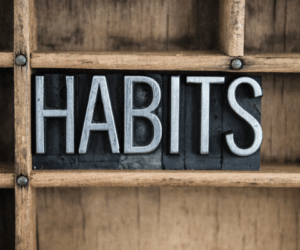The Fulbe in Nigeria, particularly the nomadic Fulbe, are faced with existential challenges all over the country. Numbering an estimated 15 to 20 million people, the Fulbe (or Fulani) constitute one of the largest pastoralist groups in West Africa, with roughly 7–8 million residing in Nigeria alone. They are confronted by complex threats that are gradually restricting their operational space and rendering life increasingly difficult and convoluted. According to recent studies, over 70 per cent of Fulbe herders report experiencing violence or theft of livestock in the past five years, while more than 60 per cent have lost access to at least half of their traditional grazing routes. This crisis is compounded by a compromised media, a negligent government, a passive elite from amidst their own kin who have found comfort in urban areas, a ruthless security system, and a judiciary often all too willing to deprive them of their freedom and property.
In 2021 alone, it was estimated that cattle rustling accounted for the loss of over 250,000 heads of cattle across Nigeria, with Fulbe herders disproportionately affected. When faced with loss, the Fulbe are unable to seek redress from the police, with restitution often out of reach. Less than 10 per cent of herders report receiving any form of justice or compensation after incidents of livestock theft. Should they resort to self-help, they risk further victimisation and are frequently compelled to pay for their own freedom.
Beyond the persistent insecurity, the Fulbe face the daily reality of being denied access to land, grazing passage, and water resources – essential elements for their survival as herders. As of 2024, over 60 per cent of Nigeria’s officially recognised grazing reserves have been encroached upon or converted to farmland. State governments, local authorities, and even government-backed vigilante groups have increasingly blocked access to traditional grazing routes, watering points, and seasonal migration corridors. These restrictions have not only undermined their livelihoods but have also led to increased tension and conflict with settled communities, as competition for dwindling resources intensifies. The Human Rights Watch has documented a marked increase in farmer-herder clashes, with over 2,500 fatalities reported between 2018 and 2022, the vast majority involving Fulbe herders.
SPONSOR AD
Government policies have tended to favour sedentary agriculture, often at the direct expense of nomadic pastoralism. Programmes designed to promote land titling and enclosure have systematically excluded the Fulbe, leaving them with little recourse as their ancestral routes are fenced off or converted to farmlands. According to the National Livestock Transformation Plan (NLTP), less than five per cent of Fulbe herders have benefited from land allocation or support, compared to over 40 per cent of settled farmers. Security forces and vigilantes, sometimes operating under the pretext of combating banditry, have been implicated in harassment, extortion, and even violence against Fulbe herders.
The media itself plays a significant role in shaping public perception, frequently portraying the Fulbe in a negative light to a gullible and stressed audience desperate for scapegoats. A 2023 media analysis found that over 65 per cent of news reports on rural conflict in Nigeria depicted Fulbe communities as aggressors, with little attention paid to their grievances or the systemic injustices they face. This narrative is readily exploited by a political class eager to capitalise on ethno-religious divisions. The Fulbe are thus rendered invisible in policy debates and are consistently denied a seat at the table when decisions affecting their lives are made.
As their space diminishes, the Fulbe find themselves pushed to the margins – socially, economically, and politically. The lack of representation and advocacy means their voices are seldom heard, while the dominant discourse frames them as outsiders or even threats. In the face of these manifold challenges, the resilience of the Fulbe is remarkable, but their future remains uncertain unless meaningful steps are taken to address their plight and restore their rights to land, passage, and water.
It is crucial to recognise that the Fulbe are not merely the subjects of negative media portrayal but are often victims of violence themselves. Numerous reports highlight that Fulani communities have suffered significant casualties from targeted attacks, yet these incidents receive scant attention or sympathy in mainstream narratives. Instead, the media frequently casts the Fulbe as aggressors, obscuring the reality that many are bereaved and displaced due to the destruction of their communities and livelihoods.
This cycle of victimhood and misrepresentation has profound consequences. Stripped of their cattle – the backbone of their economy – and left with little support or justice, some Fulbe, particularly the youth, have turned to banditry as a desperate response to the collapse of their traditional way of life.
Addressing the Fulbe’s predicament requires not only policy reform but also a broader societal reckoning with issues of justice, inclusion, and respect for diversity. Only through inclusive dialogue and genuine commitment to fairness can Nigeria hope to resolve the tensions and ensure a future in which the Fulbe, and all communities, can thrive side by side.
Ultimately, resolving the crisis facing the Fulbe requires a holistic approach – one that addresses not only immediate security and livelihood concerns, but also tackles the underlying structural inequities and prejudices that have shaped their experience. This entails meaningful policy reforms, inclusive governance, investment in rural infrastructure, and a concerted effort to challenge the narratives that have long cast the Fulbe as scapegoats. Only then can Nigeria move towards a more just and harmonious society, where the rights and dignity of all its peoples are upheld.
Toungo can be reached through [email protected]







